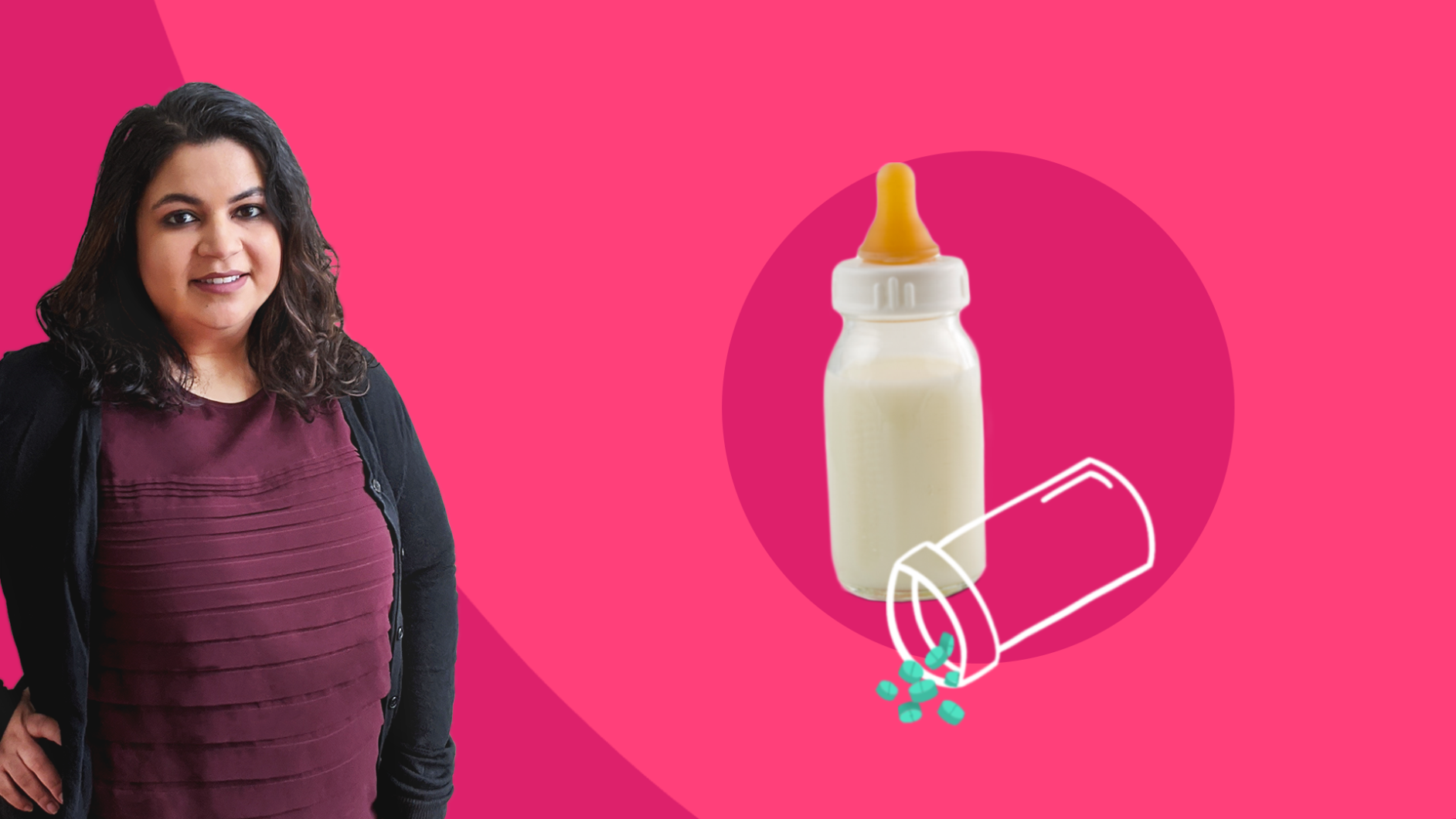Ah, the joys of early motherhood. The gurgles and cries of a baby, spit-up, diapers everywhere, and the age-old question—should I breastfeed? As pharmacists, we get a lot of questions from our patients about breastfeeding and medications. In honor of August’s National Breastfeeding Month, we thought we would address some common concerns.
There’s good news about breastfeeding and medications! The American Academy of Pediatrics (AAP) states that “most medications and immunizations are safe during lactation.” According to the AAP, the most concerning medications are pain relievers, antidepressants, and drugs used to treat substance/alcohol abuse or smoking cessation.
More good news: The AAP also says that it’s rare to have to pause breastfeeding (or “pump and dump”) while taking a medication. However, because everyone has unique medical considerations, your healthcare provider can provide you with specific, individualized instructions about medicines and breastfeeding.
Prescription medications: Be sure to review all prescription medications with your healthcare provider if you are breastfeeding. The Centers for Disease Control and Prevention (CDC) reports that when it comes to prescription medication use, “although many medications do pass into breast milk, most have little or no effect on milk supply or infant well-being. Few medications are contraindicated while breastfeeding.”
You can treat many conditions with a drug that is safe for breastfeeding, and if the medication you take is not safe, your healthcare provider will likely be able to find a suitable alternative that is safe for your baby.
Certain prescription medications should not be taken during breastfeeding, such as birth control pills that contain estrogen. You can find information about medication safety during breastfeeding in references such as Lactmed, a searchable database from the National Library of Medicine that provides detailed information on medications and breastfeeding.
Over-the-counter (OTC) considerations: Just because you can buy something over the counter, or without a prescription, does not make it ideal for breastfeeding. Certain drugs, like aspirin or naproxen, can be unsafe during breastfeeding, while pseudoephedrine may affect your milk supply.
Also, there are many combination products available, making it confusing to select the right product. For example, if you have allergies and want to try an antihistamine, it’s easy to inadvertently pick up a combination product. It’s best to use single-ingredient products as opposed to a product with multiple components. A combination product likely has ingredients you don’t need, which can lead to additional side effects, and potentially be unsafe for your baby or affect your milk supply.
Your pharmacist can help you select an appropriate OTC medication and double check safety during breastfeeding. What’s more, your pharmacist may have some ideas for remedies you can try before using an OTC product, like for allergies, a humidifier, saline nasal spray, or a saltwater gargle might be recommended.
When breastfeeding, avoid caffeine, smoking, drugs, and alcohol. While we don’t think of them as medications per se, these substances may affect your baby.
- Too much caffeine can cause your baby to be fussy or have trouble sleeping.
- The nicotine in smoke can pass through milk, causing the same issues as caffeine, and can even reduce your milk supply. Smoking around your baby can cause breathing issues and increase the risk of death from sudden infant death syndrome (SIDS).
- Drugs such as heroin, cocaine, or marijuana can be passed through the milk and are also dangerous. For example, marijuana that passes through milk can affect brain development in the baby and can also affect your milk supply.
- Too much alcohol can affect your milk supply, and excess drinking can affect your baby’s sleep and development. If you drink alcohol, keep the amount very small—less than two drinks per week. Wait at least two hours after each drink before breastfeeding.
Reach out for help. Many qualified healthcare professionals can help you determine if you can take a medication safely during breastfeeding. When it comes to your precious little one, you can never be too careful. Some helpful sources include:
- your OB-GYN
- your baby’s pediatrician
- your pharmacist
- your IBCLC (International Board Certified Lactation Consultant)
These knowledgeable healthcare providers can help you determine what’s best for you and your baby. There is always someone to reach out to, who can help you take care of yourself while keeping your baby safe.











